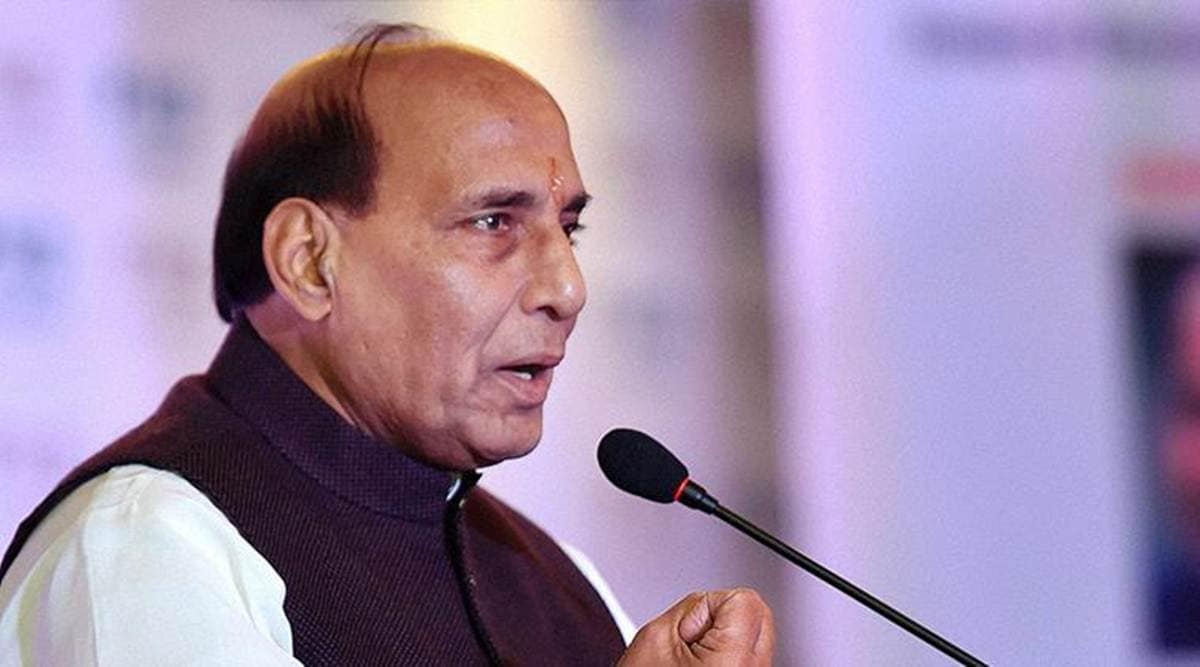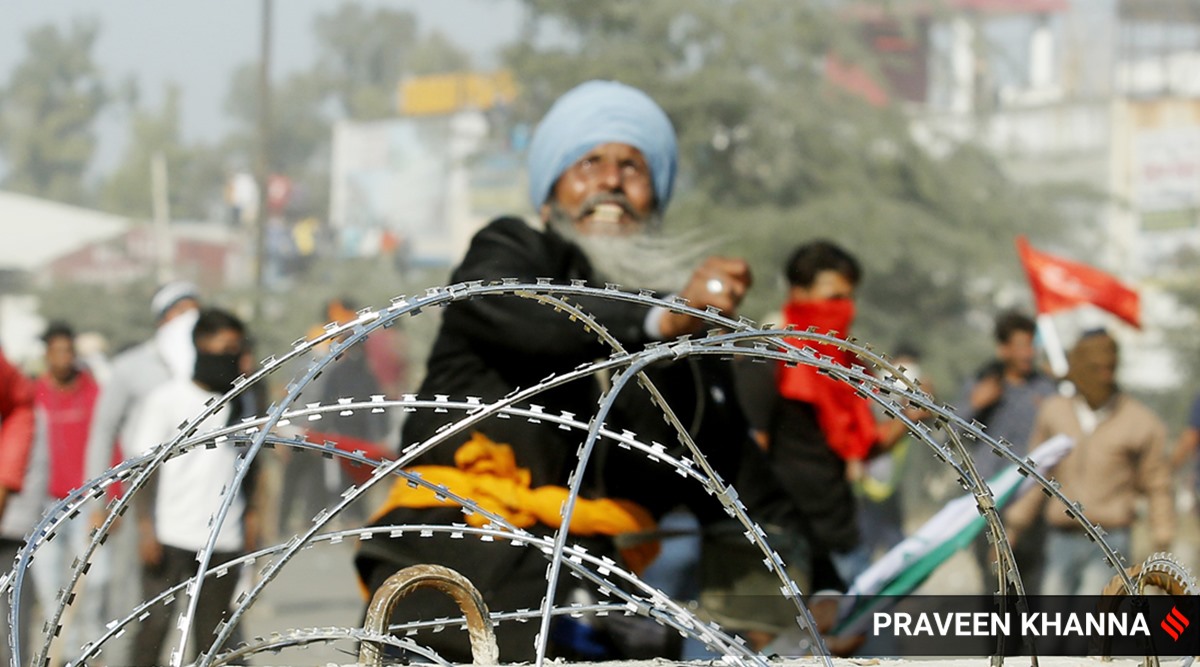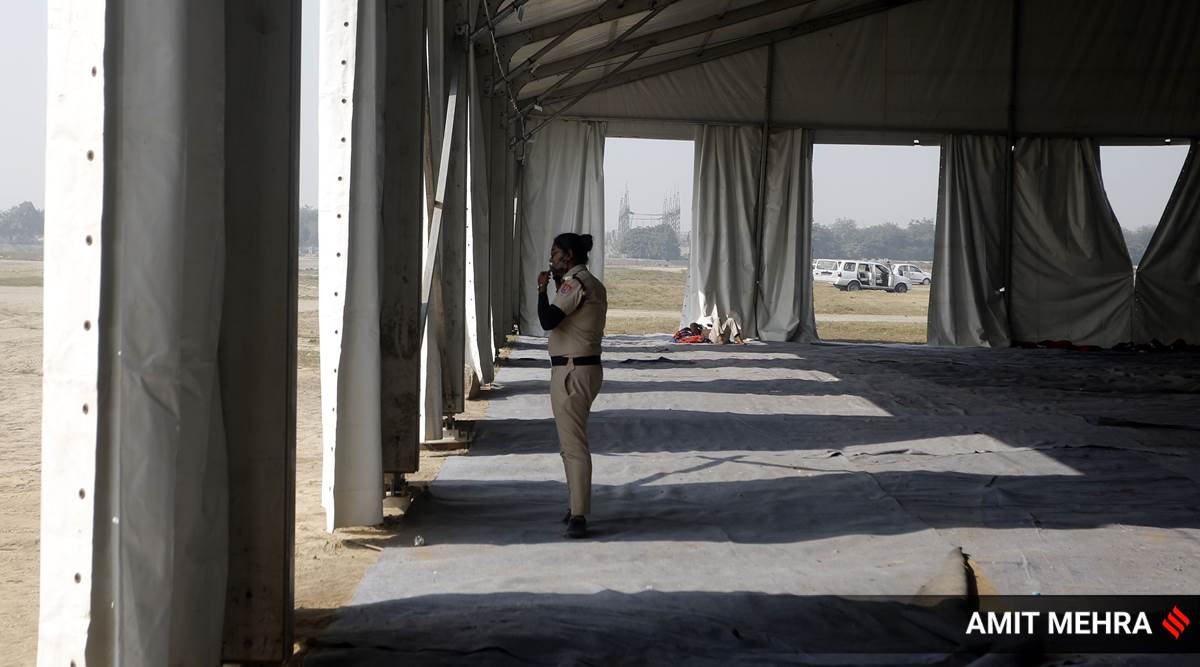It was not only Rajnath Singh's image but also his experience as a negotiator during difficult situations, especially when it comes to farmers, was weighed in, a BJP source said.
On Tuesday afternoon, when Defence Minister Rajnath Singh initiates the first rounds of talks with protesting farmers, the government expects him to pacify the farmers and rope them in for “constructive talks” and find a “middle path” to resolve the crisis, sources said.
Fielding Singh, considered to be a moderate and pro-farmer leader in the ruling BJP, was a decision taken in the morning when Union Home Minister Amit Shah, Agriculture Minister Narendra Singh Tomar and Singh himself met at BJP president J P Nadda’s residence. It was not only his image but also his experience as a negotiator during difficult situations, especially when it comes to farmers, was weighed in, a BJP source said. In October 2018, when thousands of farmers had marched towards Delhi as part of the Bharatiya Kisan Union’s ‘Kisan Kranti Padyatra’, it was Singh – then the Home Minister – who held different rounds of talks with the farmers after the protest turned violent.
Last night, the government released an official note saying Tomar would hold discussions with the farmers at Vigyan Bhavan at 3 pm today. But in the morning meeting, the government decided to pitch Singh for the talks. Shah who cancelled his programme on BSF Raising Day event also was part of the meeting.
“This round of talks is considered to be a pacifying round. The government is expecting several rounds of talks for resolving the issue,” said a source familiar with the developments. Sources in the BJP pointed out while the home minister, who is known for his sharp organising skills and political acumen, is not considered to be a good negotiator, Singh had emerged as the political troubleshooter for the BJP in the last few years.
READ | Farmers’ protest: In Delhi, Congress lends hand; in Punjab, its fingers crossed
“The government cannot afford collapsing of talks at the first round itself. We need to keep them engaged in talks so that a middle path could be found,” said the source.
The middle path is because the government is no mood to withdraw the controversial farm laws against which the farmers are protesting. But with the Minimum Support Price (MSP) being the main concern of the farmers, the government could consider making it binding in the law, not through an amendment but via an executive order while framing the rules for the laws, sources said.
“It should not be an issue as both the government and the party are committed on MSPs,” said a BJP leader. “Anyway, talks means give and take from both sides. We are sure the farmers are also aware of that,” the leader added.
So, in Tuesday’s conversation, Singh is expected to “test the temperatures” and would try and prompt the farmers to call of the ‘Rasta Roko strike announced for December 3. “If we manage to do that it would be a huge success. But even if the farmers agree to continue the talks without condition, that would be a success,” said the source.
READ | At protest site, farmers want govt to give MSP guarantee ‘in writing’
Even as the BJP leaders maintain it’s a “political protest” confined to Punjab and Haryana, the party leadership wants to ensure that it does not snowball into a nationwide agitation. Protesting farmers have already said they will be joined by their counterparts from states like Madhya Pradesh and Kerala. “The party does not want it at any cost. As long as it is in the opposition-ruled states, we can say its political and the opposition sponsoring it. But it will be tough to handle it if it spreads,” a source pointed out.
Singh would provide the feedback to the high-level group of ministers and Nadda, who would then discuss and find a formula for resolving the issue. That would be further forwarded to Prime Minister Narendra Modi for his approval before it is taken back to the farmers, sources added.
Source: Read Full Article





